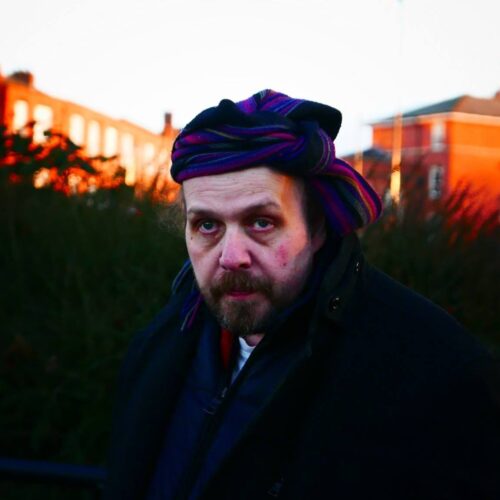
It's all about pathos
Does a composer write his or her best music at a time of joy, tragedy or tranquillity? There are persuasive cases to be made for all three.

Indeed we should probably add a fourth option i.e. none of the above as there are plenty of composers who seemed able to turn out wonderful music on a daily basis, irrespective of the circumstances. One need look no further than Josef Haydn’s 100+ symphonies, JS Bach’s 200+ cantatas, or Domenico Scarlatti’s 500+ keyboard sonatas.
Joy and love have been the inspiration of much great music. Leos Janacek wrote his striking second quartet, subtitled “Listy důvěrné“ (or “Intimate Letters”, if your Czech is off the pace) at the age of 74, to express the depth of his feelings for the much younger Kamila Stösslová; and much of Robert Schumann’s music from the mid 1830s (both for voice and piano) was inspired by Clara Wieck, who was to become his wife (despite the best efforts of her father).
Several composers sought out the tranquillity of country retreats in order to write more effectively. For some British composers in the early and mid 20th Century (e.g. Elgar, Gurney, Finzi) the geography almost became synonymous with the sound, as they developed a sparse, reflective orchestral style so evocative of rural life.
However, it’s the interface between sadness and music which is the main theme of this article. We should perhaps not be surprised that one of Tchaikovsky’s most famous symphonies and one of Beethoven’s most famous piano sonatas both became known as Pathétique (somehow the French word sounds more convincing than the English word ‘pathetic’).
A colleague shared with me the following poem by Bertolt Brecht, from Poems 1913-1956.
In the dark times
Will there also be singing?
Yes, there will be singing
About the dark times.
I must confess I hadn’t been aware of Brecht’s poetry; he is best known in musical circles for his collaborations with Kurt Weill which led, for example, to The Threepenny Opera (1928) and Mack The Knife. However, despite living through far more violent and tragic times than we will hopefully face (even taking the Comprehensive Spending Review into account …), Brecht is most emphatic in this brief poem that there will be singing about the dark times. I have put the word about in italics as I notice the original question is about singing in the dark times. Is his point that we are more likely to sing at the recollection of dark times than whilst we are in the middle of them? I’m not sure about that.
Whilst a specific incident of sadness or tragedy may often be the prompt for the composer, it can also be the stimulus for the listener. When a family member was diagnosed with cancer recently I found myself instinctively wanting to share music with her – music which seemed to be able to express feelings in a much more effective way than words. One of the tracks I turned to was a blues number (Need Your Love So Bad) by the early Fleetwood Mac – not for the specific meaning of the words but for the pathos of the guitar solo by Peter Green. Incidentally if you share my sense of frustration with the version released as the British single, where the record is faded out in mid solo, I can thoroughly recommend the longer take on the American version, although even this still has the irritating overdubbed strings!
Yes, there will be singing in the dark times, whether through the community of the choir, the directness of the folk song or the yearning of the blues.






I think that it is interesting that Brecht is so emphatic in his ‘there will be singing about the dark times’. While this seems attractive as a line of argument, I am not sure the evidence really supports the assertion – for example the song most commonly associated with the British involvement in the Second World War is clearly focused on the good times to come (‘There’ll be Bluebirds over the White Cliffs of Dover’).
More recently although the gloom of late seventies and early eighties is associated with punk and reggae and developments out these genres and some music clearly focuses on the bad times (most notably ‘Ghost Town’ by the Specials), it also saw music which focuses on the good times (eg ‘Reasons to be Cheerful, Part 3’ by Ian Dury)
On a slight tangent, but still very much pathos related, both real and implied; for me Peter Green’s coda to ‘Jumping at Shadows’ on ‘Live At The Boston Tea Party, Part 1’ is one of the most exquisite blues phrases ever played, for understated soul and timing.
The perfectly extended interval before the final note is like a rain drop waiting to gather enough mass to fall, filled to the brim with pathos. It gives me goose bumps waiting for it.
There’s another live version on Part 3 that provides an interesting comparison and illustrates the uniqueness of performance; same song, same chords, same venue, but chalk and cheese to me.
Also the whole of Duster Bennett’s song, who himself was tragically killed in a car accident at a young age, has pathos within the Peter Green story; ‘I’m going down hill but I blame myself’, ‘I’m just a picture of what I should have been’.
I saw his Splinter Group in a double bill with John Mayall at Hammersmith a few years ago and the one well known song they didn’t play, in my recall, was Jumping at Shadows; too much pathos or was it just my reading of it?
http://www.youtube.com/watch?v=nB6zg05CxYg
Re Gareth’s post: Although I don’t question the wider point you have made, Gareth, it strikes me that the White Cliffs of Dover song is in its own way very much about the dark times and conditions that led to a yearning for a return to what’s associated with the familiar,safe and loved.
Hi Roberta – Having just read through the lyrics – I think you are absolutely right – just never noticed the mention of bombs before – thanks for pointing this out.
I take my hat off to you (well my metaphorical hat at least) for your thorough checking, Gareth – don’t know where you find the time but your response is appreciated.
I think there is a strong case to support the idea that the best art is the ‘passionate’ expression of artists with something interesting to say on topics or subjects important to them.
I argue that it is the idea that informs a work that is the most important feature of a piece of art and if we accept that our best ideas or ‘insights’ are often achieved at a time of intense feeling then a composer cd write his best work at a time of either joy, tragedy or tranquility i.e. either one of these passions cd provide the emotional state that would produce
the higher kind of thinking that defines the best art.
At the end of the day art as culture is very much a human product so sublime art not only touches us emotionally it intellectually enlightens us or deepens our understanding of
man and the human condition – ultimately its all about moral truth!